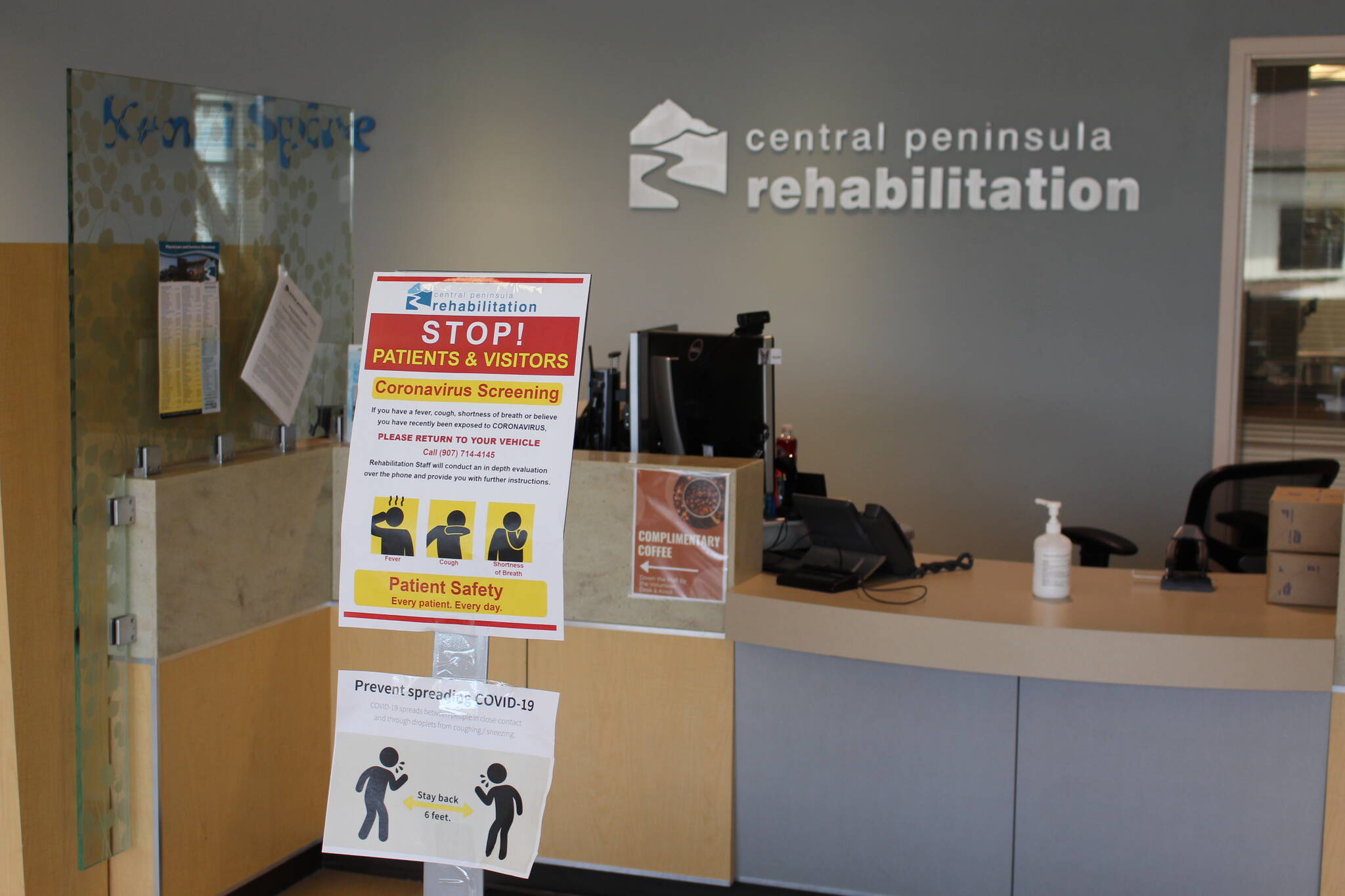Citing lower COVID-19 community infection rates, Central Peninsula Hospital last week said that it is relaxing visitor restrictions for COVID-negative patients, effective March 15. Different restrictions apply to pediatric and adult patients and vary depending on the type of service the patient is receiving.
“Most significantly, COVID negative inpatients can now have two visitors at a time, including in the Family Birth Center,” the hospital shared via social media March 15.
All visitors will still be required to wear a mask while at the hospital, and must pass a health screen at the hospital entrance. Children will be allowed to go with parents to scheduled appointments. For all treatment types, COVID-negative pediatric patients can be accompanied by two parents or guardians. COVID-positive pediatric patients can be accompanied by one parent or guardian.
A full breakdown of the new guidelines can be found on the hospital’s website at cpgh.org/corona.
The Alaska Department of Health and Social Services announced Friday that 510 new COVID-19 cases were reported in Alaska from March 16 to March 17, including 503 among residents. On the Kenai Peninsula, 23 resident cases were reported in Homer, 15 were reported in Seward, 11 were reported in Soldotna and eight were reported in Kenai. One resident case was reported each in Anchor Point, Fritz Creek, Kenai Peninsula Borough North, Kenai Peninsula Borough South.
Other resident cases reported Friday included 132 in Anchorage, 33 in eight Nome Census Area communities, 26 in Juneau, 24 in Nome, 20 in seven Bethel Census Area communities, 19 in the Greater Palmer Area, 19 in the Greater Wasilla Area, 17 in Fairbanks, 13 in Kotzebue, 13 in six Northwest Arctic Borough communities, 12 in two Dillingham Census Area communities, 12 in Ketchikan, 11 in Dillingham, 11 in Eagle River, nine in two Kusilvak Census Area communities, eight in four Yukon-Koyukuk Census Area communities, seven in Kodiak, six in Cordova, six in North Pole, six in Sitka, five in Bethel, five in Metlakatla, three in Aleutians East Borough, three in Chugiak, three in Wrangell, two in Denali Borough, two in Haines, two in the Houston/Big Lake area, two in Unalaska and two in Utqiagvik. One resident case each was reported in Bristol Bay/Lake and Peninsula combined, the Copper River Census Area, Girdwood, Hooper Bay, Mat-Su Borough, Petersburg, Skagway, Valdez and Willow.
Additionally, seven nonresident cases were reported, including two in Fairbanks, two in Prince of Wales-Hyder Census Area, one in Anchorage, one in Eagle River and one in Sitka.
Officials widely agree getting vaccinated against COVID will help slow the spread even further and protect people from severe illness, hospitalization and death.
The Pfizer-BioNTech vaccine is approved for everyone 5 years and older, while the Moderna and Johnson & Johnson/Janssen vaccines are approved for anyone 18 and older.
In addition to a primary series — two doses of the Pfizer or Moderna vaccine or one dose of the Janssen vaccine — experts are strongly encouraging booster shots to protect against omicron, whether or not a person has already contracted the virus and despite elapsed time since the completion of the primary series. The Food and Drug Administration and Centers for Disease Control and Prevention are recommending Pfizer boosters for anyone 12 and older at least five months after the primary series. Additionally, Moderna boosters are recommended for anyone 18 and older at least six months after a primary series.
Janssen boosters are approved for anyone 18 and older at least two months after initial vaccination, although DHSS officials say the Janssen shot isn’t the preferred vaccine because of risks of blood clotting and less robust protection against COVID. The state recommends people with a primary Janssen vaccine to get either a Pfizer or Moderna booster.
Getting a vaccine
COVID-19 vaccines do not cost money, and are available to people with and without health insurance. Many organizations on the central peninsula — including Walmart, Walgreens, the Kenai Fire Department and Kenai Public Health — offer vaccines.
Additionally, Soldotna Professional Pharmacy hosts a walk-in clinic in its strip mall storefront at the “Y” intersection of the Sterling and Kenai Spur highways. The clinic is open from noon to 6 p.m. Monday through Friday and 10 a.m. to 2 p.m. on Saturday.
Vaccination appointments can also be scheduled through the online portal PrepMod, which can be accessed at myhealth.alaska.gov.
A map of vaccine providers can be found on DHSS’ COVID-19 vaccine website at covidvax.alaska.gov.
People who would like assistance scheduling a vaccination appointment can call the Kenai Peninsula Borough Office of Emergency Management call center. The center operates Monday through Friday from 9 a.m. to noon. The central peninsula call center can be reached at 907-262-4636. The Homer call center can be reached at 907-235-4636. The Seward call center can be reached at 907-224-4636.
Testing locations
Officials encourage anyone with symptoms to test for COVID-19, despite vaccination status.
In Kenai, testing is available at Odyssey Family Practice, Kenai Public Health Center and Capstone Clinic. At-home test kits are also available for free at Kenai Public Health.
In Soldotna, testing is available at the Peninsula Community Health Center, Urgent Care of Soldotna, Walgreens and Soldotna Professional Pharmacy.
In Homer, testing is available at South Peninsula Hospital, or through other area health care providers at Seldovia Village Tribe Health and Wellness, Kachemak Medical Group and Homer Medical Center. In Seward, testing is available at Providence Medical Center, Glacier Family Medicine, Seward Community Health Center and the Safeway pharmacy.
Reach reporter Ashlyn O’Hara at ashlyn.ohara@peninsulaclarion.com.

